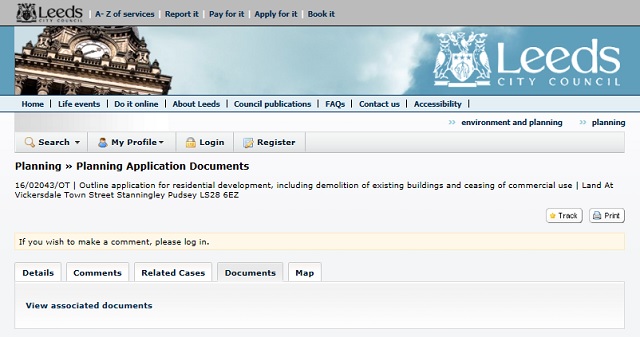Words: Richard Beecham, local democracy reporter
Children’s social work in Leeds is sometimes slow to make decisions about children needing support, a letter from Ofsted has claimed.
The document, which follows a focussed visit by the regulator in July, was published today, and also suggested the quality of assessments of children’s situations by social workers was sometimes inconsistent.
A member of Leeds City Council’s decision-making executive board said the council had been made aware of areas to improve, but it was already making these changes, and that no child was found to be unsafe.
But a senior opposition councillor called the letter “alarming”, and suggested the council needed a “three-point plan”, which would include sharing best practice from other authorities.
The focussed review, effectively a mini-inspection, follows a glowing Ofsted review at its last full inspection in 2018, in which Leeds Childrens’ Services was given an “outstanding” rating.
But the letter stated that social work was now less successful “at the front door”, adding it was “not as consistently strong as it was at the last inspection.” It stated:
“The front door experienced an increase in contacts during the pandemic, with many of these related to domestic abuse and parental conflict.
“For most children, timely and proportionate decision-making leads to them receiving the right service when needed. Where there is a clear identification of risk, children’s cases are transferred to the locality teams without delay.
“Parental consent is well understood and considered and, where necessary,
dispensed with to allow further checks to be made.“However, where an immediate child protection risk is not clear, decision-making is not always timely. For some children, there is a delay in them receiving the right level of intervention at the earliest opportunity.
“Managers at the front door are not demonstrating that they have sufficient oversight of the progress and timeliness of children’s cases. Managers do not consistently provide a recorded rationale where timescales for the progression of contacts and referrals are not met.
“In some instances, this is appropriate and allows further work to be undertaken. However, for some children, this leads to a delay in the analysis of
risk and identification of the required intervention.“Many referrals and repeat referrals are due to domestic abuse. In some children’s cases, there is not a robust understanding or analysis of the previous history and incidents. For some children, this means that the cumulative impact of domestic abuse is not being considered in the assessment of risk and decision-making.”
It added that the council had recently introduced a daily meeting between agencies to help improve its response to domestic abuse, but that this change was quite recent, so it was too soon to see the impacts.
The letter also claimed that less than half of the strategy meetings were attended by the three “key safeguarding partners”, leading to the council’s social workers having to make decisions on children’s futures without the “fullest information about their family circumstances”.
It also added that the quality of assessments on children by social workers was variable – with some showing a “focus on the child with effective information gathering that analyses the child’s needs”, but others being “overly descriptive”, with an analysis that “does not clearly focus on the impact of the identified risks on the child”.
The letter concluded:
“Despite an increase in demand over the last 12 months, there has not been a corresponding increase in average caseloads.
“However, there is variability, with some social workers holding higher than average caseloads. Social workers reported these to be manageable.
“Staff are proud to work for Leeds and enthusiastic about the Leeds practice model. There is a stable workforce, with good retention rates. Teams are well established, meaning that many children have a consistent social worker, which supports good relationships.
“Staff reported positive opportunities for career progression, with many choosing to remain in Leeds throughout their social work careers.”
A full inspection is expected to take place at some point in the coming year.
The education and social care spokesman for Leeds City Council’s Conservatives group Coun Ryan Stephenson said: “This report raises serious concerns about Leeds’ children’s social care services, which will make alarming reading for all Leeds councillors.
“It’s sadly clear from the report that some aspects of the service are simply not performing as strongly as they were at the last inspection, and the findings therefore need to be acted on decisively.”
In a letter to Leeds City Council’s executive member for children’s social care, Coun Fiona Venner (Lab, Kirkstall), Coun Stephenson proposed a so-called three point plan. This included calling in “best practice advice from other local authorities, using council committees to monitor the progress made in the areas of concern, and further independent reviews of the service in future.
Coun Venner responded:
“To be absolutely clear, in all of the cases considered by Ofsted in this focused visit, no child was found to be unsafe, all children were seen by children’s social work services as appropriate. All social workers were found to have received regular supervision, and Ofsted identified that Leeds has a stable, committed and enthusiastic workforce.
“The report highlights our continued investment in, and provision of, early help services that have adapted to the demands brought about by the pandemic and which help avoid the need for more formal statutory interventions.”
Coun Venner added: “Thankfully, the areas identified by Ofsted following their focused visit are ones we are aware of and are not unexpected in the light of the pandemic. Work is already under way in response to the findings and we are in conversation with staff and relevant partners to address the recommendations for improvement.
“Protecting the most vulnerable children in Leeds remains our number one priority. The recommendations outlined in the report will aid our Covid recovery and our continued work to ensure the best possible outcomes for all children and young people in the city.”




